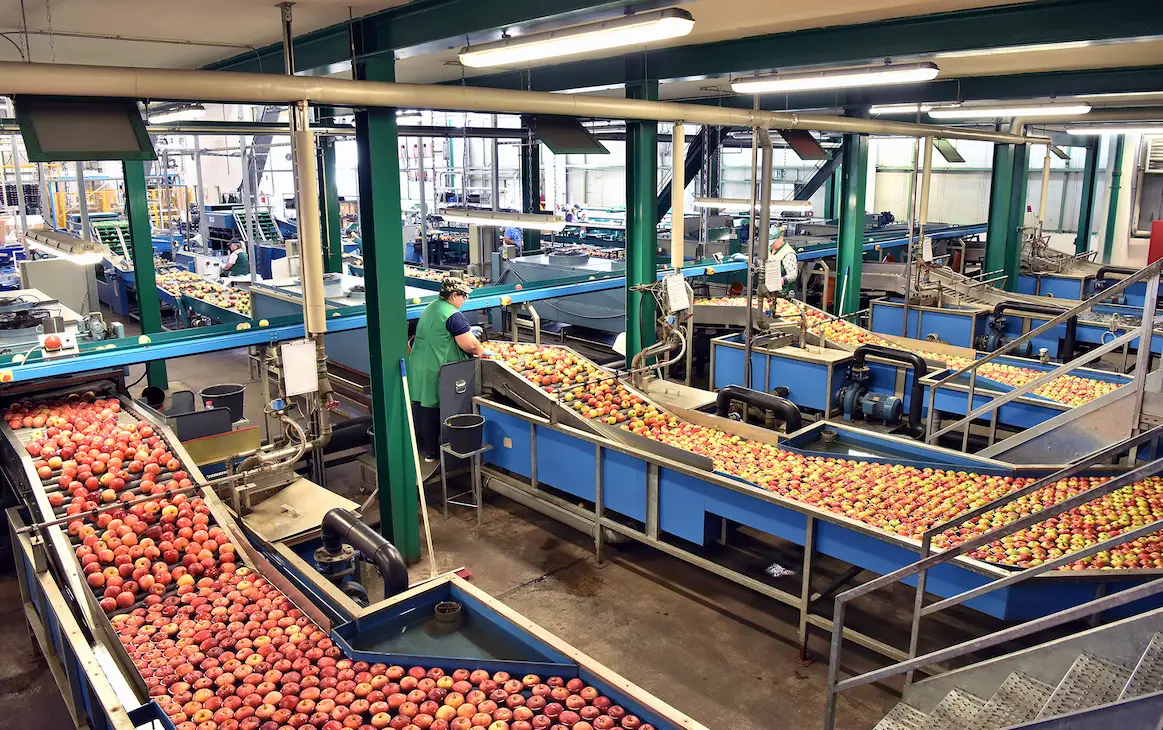In today’s fast-paced food industry, effective supply chain management is essential to ensure the highest quality, safety, and efficiency in food ingredients. It is more than just establishing an ingredient list, requiring insights related to every step of the supply chain to maintain food safety, meet sustainability expectations, and adhere to regulatory standards. As regulations increase and consumer demands shift, adopting best practices in supply chain management can help businesses across all industries effectively manage their food ingredients.
The Importance of Food Ingredient Supply Chain Management
Food ingredient supply chain management requires organizations to track the entire journey of ingredients over the course of their life. From sourcing raw materials and managing inventory to ensuring quality control and managing inventory, food ingredient supply chain management requires many steps.
When done correctly food supply chain insights can ensure that ingredients remain fresh, safe, and of high quality, while minimizing waste, reducing costs, and meeting consumer demands. This being said the journey to effective food ingredient management may come with challenges.
Whether it’s perishability, regulatory requirements, quality assurance, or dealing with ingredient sourcing, each ingredient is faced with different needs and expectations. Businesses must navigate these complexities through inventory management and a clear understanding of ingredient demands to avoid supply chain issues.
Food companies with well-managed ingredient supply chains will not only improve product quality and customer satisfaction but can also reduce food waste and spoilage and in return increase profitability.
Components of an Effective Food Ingredient Supply Chain
When it comes to the management of food products companies should consider the following to maintain the highest quality products.
- Supplier Selection and Management
Right off the bat, it is essential that organizations collaborate with suppliers and distributors who align with the company’s goals and needs. Companies should then establish clear guidelines to ensure that quality, safety, and sustainability standards are maintained with ingredients providers.
- Quality Assurance and Regulatory Compliance
By aligning with suppliers and internal stakeholders companies can implement rigorous quality control checks at every stage of the supply chain. This process can ensure compliance with local, national, and international food safety regulations to meet industry standards and protect consumer health.
Regular supplier audits and compliance checks should also be upheld to ensure suppliers stay up to date with quality standards and regulatory requirements.
- Efficient Logistics and Inventory Management
Coordinating supply chain logistics and inventory management is no easy task. Transportation, storage, and supply chain disruptions, among other things, are all highly important elements companies must consider when it comes to food manufacturing.
With clear insights into supply chain operations companies can do their best to maintain ingredient freshness and minimize waste, while forecasting stock levels to balance supply and demand shifts even in the case of shortages.
- Traceability and Transparency
Ensuring traceability from raw materials to finished goods requires maintaining accurate records and real-time visibility throughout entire supply chains. Traceability can ensure accountability, facilitate quick response to recalls, and build trust with consumers through transparency of food ingredients.
- Technology Integration, Partnerships, and Risk Management
To optimize Food Ingredient Supply Chain Management even further organizations may consider technological integrations, partnerships, and practice risk management strategies. In doing so companies can further enhance supply chain visibility, foster collaboration, and minimize potential disruptions to build an even more resilient and efficient supply chain.
Future Trends in Food Ingredient Supply Chain Management
Looking ahead, companies should actively consider the role and emergence of technologies when it comes to supply chain chain management. From blockchain and artificial intelligence (AI) to the Internet of Things (IoT), the way supply chains operate is transforming now more than ever.
Across industries, businesses are also working to create a sustainable balance between global sourcing and more localized, transparent supply chains. This shift reflects a desire to minimize carbon emissions, support local economies, and respond to customer demands for more sustainable and ethically sourced ingredients.
As these shifts pan out, organizations should constantly be looking to improve inventory management to stay ahead of trends and build more resilient supply chains that align with future market needs.
The Role of Data in Food Ingredient Supply Chain Management
In order to improve supply chain efficiency and make more informed decisions companies must first understand and have access to their data. In the absence of real-time data, organizations are unable to monitor their supply chain performance and efficiently respond to any unforeseen issues.
As risks in the supply chain, such as disruptions, contamination, and non-compliance, are identified, companies should develop strategies, grounded in a data foundation, for reducing similar issues in the future.
Using the right tools for specification data management (SDM) companies can use analytics to anticipate demand, manage inventory, and optimize sourcing – and in doing so implement cost savings along the way.
By embracing a data-centric approach and leveraging technology like Specright’s patented, Specification Data Management platform, organizations can enhance visibility, traceability, and decision-making when it comes to food ingredient supply chain management.
How Specright Improves Food Ingredient Supply Chain Management
Maintaining traceability and visibility into your company’s supply chain is essential in today’s fast-paced and ever-changing environment. Specright enables F&B companies to streamline data, improve traceability, and ensure regulatory compliance.
As expectations in food ingredient safety shift with consumer demands, companies looking to stay ahead of competitors must be in tune with their supply chain operations in order to make necessary changes.
Specright makes these unexpected shifts easy for food manufacturers across the globe. To learn more check out this blog or request a demo with our team.
Explore More Blogs
Get Started
With Specright’s Solution Suite, you can digitize, centralize, and link your specification data to drive efficiencies, intelligence, traceability, and collaboration within your organization and across your supply chain network.




